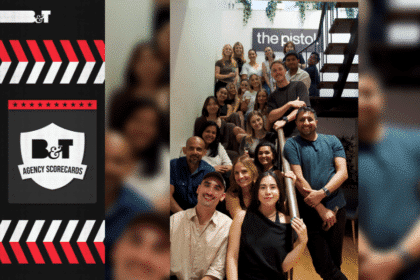Tumbleturn, the pitch consultancy run by Jen Davidson, is on a mission to make pitching safer, more secure and more rigorous by introducing Virtual Data Rooms (VDR), a tech borrowed from corporate mergers and acquisitions and large infrastructure projects.
“It’s a little dry and probably not the sexy side of pitching,” she admitted to B&T.
“But every agency CEO that we’ve spoken to has done a collective hallelujah because they’re the ones that feel the most compromised.”
VDRs, Davidson’s colleague Dan Johns explained, are the opposite of emails or sites such as Dropbox for storing and sending important and commercially sensitive information.
Instead, these data rooms establish a secure holding place for documents and information with different access rights and controls over downloads and timelines. Every share, download, print and even screenshot is tracked and the VDRs can be set up to prevent these, as well. It also eliminates emailing, according to Davidson, something which will be a huge relief for anyone working on pitches. At the end of every pitch, all documentation is redacted with an encrypted flash drive containing audit trails provided to each stakeholder.
“Then you can redact documents, so even if it’s been downloaded or shared, it just disappears,” he added.
The tool, created in partnership with iDeals, is already in use by Tumbleturn on the pitches it has been working on. B&T tried to tease out which pitches it had been used on but Johns and Davidson were not to be drawn on the issue – “It would be ironic if we told you, when we’re talking about security and protection,” laughed Johns.
So why hasn’t it been in use before?
“It’s just the way it’s been done,” said Johns.
“Nothing has really been done to challenge the conventional way that the pitch process runs for 20 years. Everything runs in a similar way, with similar stages, similar processes and similar sharing of information. It takes someone to say ‘Is there a better way to do this and actually change that thinking?’ That’s where we come from, not only on this topic but we’re constantly trying to think of better ways to improve the pitch process.”
Of course, Tumbleturn isn’t purely doing this out of the goodness of its heart. It will give the consultancy a leg up on its rivals.
“As we understand it, we’re the first to do it. We’re pretty proud of making that call and putting the change in place. But, we want to see standards improve and make people feel more comfortable with the processes and the ways of working,” said Johns.
Naturally, VDRs can’t stop industry gossip – and they certainly won’t stop B&T from breaking stories. But, when anyone logs into the VDR, they are presented with a nondisclosure agreement and documents are watermarked.
“That has a flow-on effect to reinforce the fact that these processes are confidential, so hopefully that means people are less likely to share information that they shouldn’t,” said Johns.
For many parts of organisations, this kind of technology would not be new. However, for the pitching process, VDRs might be transformative.








